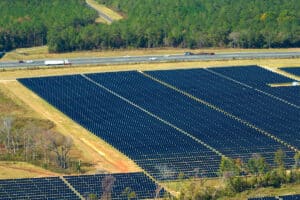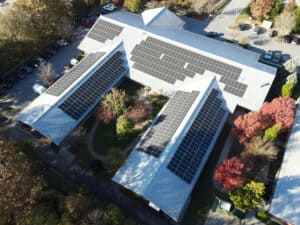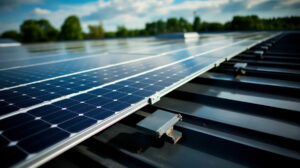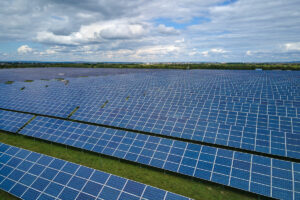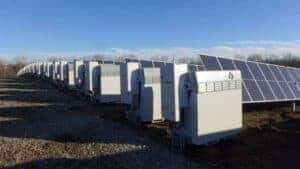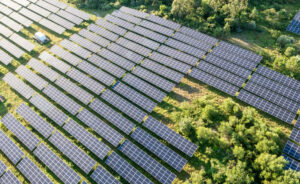In an ever-evolving world, where sustainability and renewable energy have become paramount concerns, the concept of energy communities has emerged as an innovative and promising solution. Energy communities represent a paradigm shift in the energy sector, empowering individuals and local communities to take charge of their energy needs while promoting sustainability and environmental consciousness. This article will delve into the world of energy communities, exploring their definition, benefits, functioning, and the positive impact they have on both the environment and the people involved.
What are Energy Communities?
An energy community refers to a collective of individuals, households, businesses, or organizations that come together to share, generate, and manage energy resources. These communities operate on principles of self-sufficiency, sustainability, and cooperation, aiming to reduce dependence on traditional energy sources and fossil fuels. By pooling their resources and knowledge, members of energy communities can collectively invest in renewable energy sources, such as solar panels, wind turbines, or biomass facilities, and share the generated electricity among themselves.
At the heart of an energy community lies the power of collaboration. By pooling resources, knowledge, and technologies, members can collectively create a more efficient and resilient energy ecosystem. Through shared ownership and decision-making, participants can actively contribute to shaping their energy future.
Read: The Role of Community Choice Aggregator (CCA) in Promoting Renewable Energy
Benefits of Energy Communities
Energy communities offer a plethora of benefits that extend beyond individual advantages. Let’s explore some of the key advantages they bring to the table:
- Environmental Impact: Energy communities play a crucial role in reducing greenhouse gas emissions and combating climate change. By promoting the use of clean and renewable energy sources, they contribute to a greener and more sustainable planet.
- Energy Security: With finite traditional energy sources, energy communities provide a sense of security by relying on locally produced renewable energy. This reduces dependence on external suppliers and mitigates the risks associated with fluctuating energy prices.
- Community Empowerment: Energy communities empower individuals and organizations to participate in the transition to renewable energy actively. Members have a say in decision-making processes, fostering a sense of ownership and pride in their sustainable initiatives.
- Economic Benefits: By investing in local renewable energy projects, energy communities stimulate the local economy, create jobs, and boost regional development.
- Lower Energy Costs: Sharing energy resources allows members to benefit from reduced energy costs. Surplus energy can even be sold back to the grid, generating revenue for the community.
- Educational Opportunities: Energy communities serve as educational platforms, fostering awareness and knowledge about renewable energy and sustainable practices.
How Energy Communities Function
Energy communities operate on a cooperative model, where participants work together to achieve their common objectives. The following is how an energy community typically functions:
Formation and Assessment
Energy communities start with interested individuals or organizations coming together to form a group. Membership is open to anyone within the community who shares the vision of promoting renewable energy. The community then conducts a comprehensive assessment of its energy needs and identifies potential renewable energy resources available locally.
Investment and Monitoring
Members pool their financial resources to invest in renewable energy infrastructure, such as solar panels or wind turbines. The installation process is overseen by experts to ensure safety and efficiency. The energy generated by renewable sources is shared among the community members. Advanced technologies and smart grid systems may be employed for efficient distribution.
Monitoring systems are put in place to track energy production and consumption. Regular maintenance ensures the efficiency and longevity of the renewable energy infrastructure.
Energy Generation
Energy communities harness renewable energy sources such as solar panels, wind turbines, and biomass generators to produce clean electricity. The surplus energy can be stored in batteries or fed back into the grid for others to use, promoting a circular energy flow.
Energy Storage
To ensure a continuous energy supply, energy communities invest in advanced energy storage technologies. Batteries and other storage solutions play a crucial role in balancing energy supply and demand, especially during intermittent renewable energy production.
Demand Management
Smart energy management systems are employed to optimize energy consumption within the community. By implementing demand response strategies and encouraging energy-efficient practices, energy consumption can be better aligned with production, reducing waste and costs.
Read: Unlocking the Potential of Brownfield Development in Renewables
The Future of Energy Communities
The concept of energy communities is gaining momentum worldwide as communities strive to adopt sustainable practices. These communities not only contribute significantly to reducing greenhouse gas emissions but also foster a sense of unity and shared responsibility among their members.
As renewable energy technologies continue to advance, energy communities are poised to play an even more substantial role in the future. Their decentralized nature empowers individuals and localities to take charge of their energy needs, which aligns perfectly with the global shift toward cleaner and greener energy alternatives.
For further information and recommendations on energy communities, visit the IRS frequently asked questions page.
Read: Long-term Outlook on the Inflation Reduction Act: What Renewable Energy Incentives Can be Utilized?
Interested in renewable energy?
If your organization is interested in reaping the financial and sustainability benefits of renewable energy, whether through an energy community or other developments, consider partnering with EnergyLink. At EnergyLink, we offer a range of financial modeling and project funding services to aid and support your organization in the implementation of clean energy systems.
To get started, click here or speak to a member of our knowledgeable team by calling (866) 218-0380. Interested in staying up-to-date on the latest renewable energy industry news? Fill out the form below to sign up for our bi-weekly industry insights newsletter.

